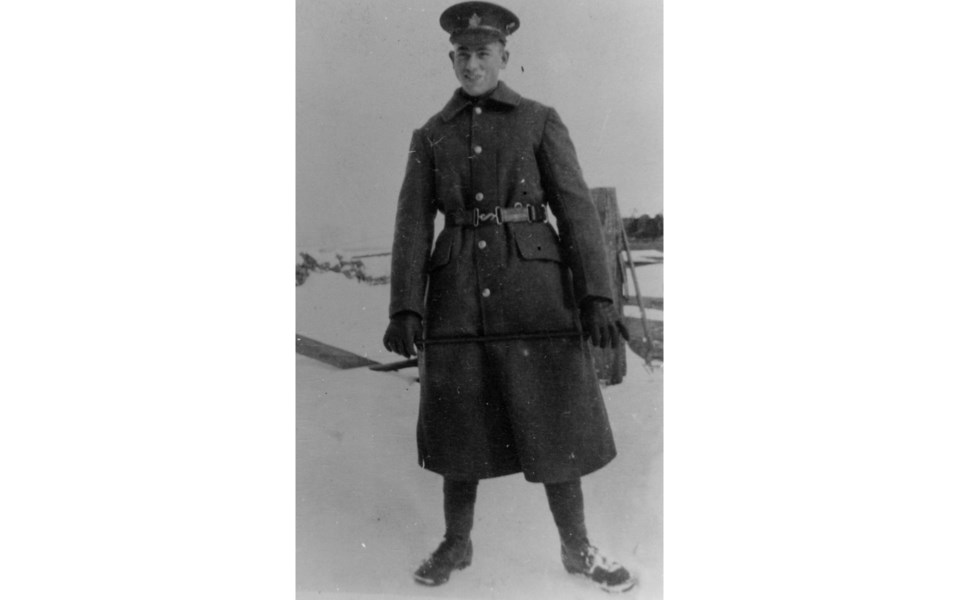Remembrance Day is a time to pay tribute to the men and women who served in wars past, honouring their deeds and sacrifices to our nation.
The concept of selfless service is exemplified by former Innisfil native Private Arthur Brooke Jack, a hero of the First World War.
Arthur Brooke Jack was born in Nantyr on Nov. 3, 1899, the second son of farmer John W. Jack.
He likely would have been destined for a quiet, mundane life on the farm if not for the outbreak of the war in 1914.
Despite brutal fighting, Canadian men enlisted in droves, driven by a sense of duty.
Arthur Brooke Jack was one of those men, young boys really, who signed up to fight for King and Country. He enlisted in the 208th Battalion in 1917, immediately upon turning 18 years of age. One imagines that, like so many other young men, he anxiously awaited the day when he was old enough to be accepted by the army. One also imagines that his mother dreaded that same day, and that his father looked upon it with a mixture of pride and apprehension.
After training, Private Jack was transferred to the 116th Battalion and then sent overseas to the squalor and blood of the front lines.
His baptism under fire occurred in the summer of 1918, when the Allies began a massive push to end the war. The period from Aug. 4 to Nov. 11 was known as Canada’s 100 Days, three months of constant combat that saw the four divisions of the Canadian army make impressive gains and defeat no fewer than 47 German divisions.
On Aug. 18 privates Jack and I.D. Ross were dispatched on a routine patrol toward Hammonwood, scouting for retreating German forces. They set out eagerly, their mood no doubt buoyed by the certainty that the war would be over before the new year.
Jack and Ross cautiously approached the woods, eyes straining for signs of the enemy. They caught a glimpse of movement and dropped to the ground. Before them was a German unit, 43-men strong, dug in behind earthworks and manning five machine guns.
It would have been easy to crawl back to their own lines at that time, to keep their heads down and look out for themselves. And with the war tantalizingly near its end, who would blame them if they did?
But instead of retreating, Jack and Ross agreed to an audacious plan that might, if successful, save other lives. Since the enemy had not yet detected them, the young men decided that an immediate attack would panic the German soldiers and drive them from their position.
The odds were heavily stacked against them, but they attacked, nonetheless. Shots were fired, followed by a bayonet charge that saw privates Jack and Ross assault a force that outnumbered them heavily. To their surprise, the panicked Germans, who no doubt assumed they were being attacked by a much larger force, quickly threw down their weapons to surrender.
Both men were later awarded the military medal for bravery in the field. Sadly, only Private Jack lived long enough to enjoy the accolades; Private Ross was killed in action soon after.
Following the war, Arthur Brooke Jack returned to Innisfil, married, and had four sons. He died on Sept. 14, 1940.
Arthur Brooke Jack was a hero. Not because of his actions on Aug. 18, 1918, but because whenever faced with a difficult decision — whether it be to enlist in the army or to attack an overwhelming enemy force — he chose duty and honour over self.



